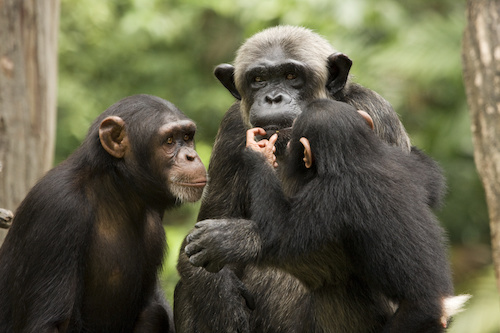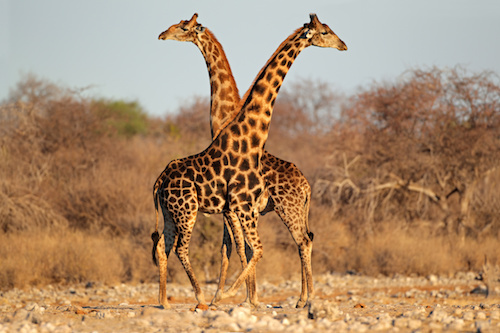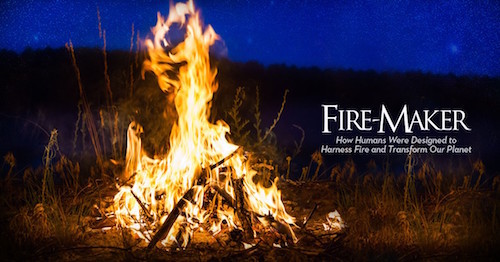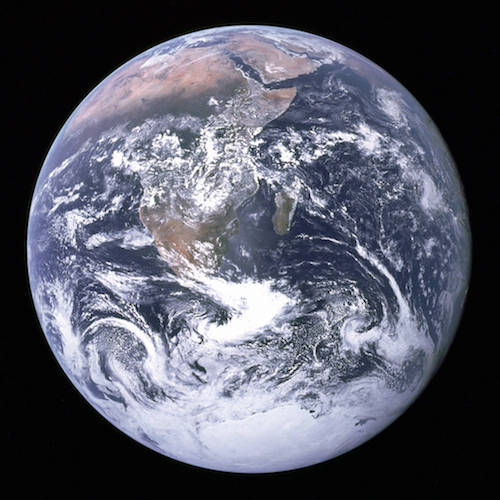Discovery Institute's Blog, page 67
May 19, 2016
Local Fitness Landscape Mapped Out for Green Fluorescent Protein
Proteins are a showstopper for evolution. Proteins consist of dozens, hundreds, even thousands of amino acids and, like most machines, they don't work very well until most of the parts (amino acids in this case) are in place. Half of the amino acids don't give you half the function of a protein. You can read more about this here and here. Now a new paper in Nature, "Local fitness landscape of the green fluorescent protein," reinforces the problem of protein evolution.
One approach to studyin...
No, a "Universal but Arbitrary Genetic Code" Doesn't "Vindicate Darwin"

A reader sends along an article from earlier this week by science journalist Matt Ridley, writing in the London Times ("Gene editing isn't a slippery slope to eugenics"). Ridley says:
At a seminar today to mark [Francis] Crick's centenary at Cold Spring Harbor Laboratory in New York, hosted by his famous collaborator Jim Watson, I shall argue that the genetic code was the greatest of all the 20th-century's scientific discoveries. It came out of the blue and has done great good. It solved the...
Chimps "Grieve" for a Lost Loved One, Just Like People?

This is really one for Wesley Smith, but I can't resist. The BBC offers video proof that chimps "grieve" for their dead, just like people. And maybe they do. But from the highlights reel published online, I'm skeptical:
A unique, remarkable and intimate film may change the way we think about animals, and their ability to feel grief.
The newly-published film captures the solemn reactions of a group of chimpanzees who discover the dead body of a friend.
For 20 minutes, the chimpanzees quietly...
Michael Denton on Fire as a "Close Call"

On a new episode of ID the Future, biologist Michael Denton talks with Robert Crowther about fire as a "close call." He means that for the existence and use of fire by beings like ourselves -- key to the rise and flourishing of civilization -- conditions on our planet and in our own physiology had to be exactly right, down to very specific, demanding parameters.
This is the subject of the newly released documentary from Discovery Institute, Fire-Maker: How Humans Were Designed to Harness Fir...
May 18, 2016
How the Giraffe Got Its Looooong Neck

From New Scientist ("Giraffes got their long necks thanks to a few dozen gene changes"):
Tweaking a few dozen key genes that regulate development gave giraffes their long necks. It's a discovery that points to the subtle complexity behind this striking adaptation.
Biologists now routinely compare genomes of related species to identify the genes that may underpin their differences. Douglas Cavener of Penn State University in University Park, Pennsylvania, realised that giraffes afforded an un...
Fire-Maker Is on Sale Now! Dr. Denton Shows How We Were Designed to Transform the Earth -- with Fire

Earth is not merely hospitable to human beings -- it would have to be, otherwise we wouldn't be here. It also appears to have been very precisely designed to be so, specifically for creatures like us, who were intended from the beginning of the cosmos.
This cosmic fine-tuning is the theme of biologist Michael Denton's book Nature's Destiny, but admittedly some aspects of that are a little abstract. Not so when it comes to the way our planet is designed for the use of fire. What could be more...
Radical Environmentalist Admits that Humans Are Exceptional

The New York Times often publishes articles and columns denigrating the idea that human beings have an exceptional status. But the anti-human meme sometimes crashes with the newspaper's focus on convincing us to "save the planet" by cutting off our noses to spite our collective faces.
On such occasions, our unique duties as humans come out of the advocacy drawer, demanding that we sacrifice ourselves -- a core capacity of human exceptionalism -- on the altar of the earth goddess Gaia.
Latest...
Tolerate Differences in Scientific, Not Just Political, Viewpoints

In his New York Times column recently, Nicholas Kristof offered "A Confession of Liberal Intolerance." A liberal himself, Kristof acknowledges that universities welcome many kinds of diversity -- except the political and philosophical kind. We could add another: viewpoints on evolution and intelligent design.
Kristof paints a stark picture of discrimination directed against conservatives and Evangelicals:
"Outside of academia I faced more problems as a black," he [George Yancy, a black Evan...
May 17, 2016
Two Kinds of Science "Skepticism"

Over the weekend in New York, the excellent science journalist John Horgan spoke at a convention of "Skeptics," the Northeast Conference on Science and Skepticism, and absolutely flailed crowd. I wish I could have been there. Even better, he published his comments at Scientific American. This is a man after my own heart. He begins:
I hate preaching to the converted.
Ditto.
If you were Buddhists, I'd bash Buddhism. But you're skeptics, so I have to bash skepticism.I'm a science journalist. I...
Oceans Full of Design

Some look like miniature spaceships. Some look like tiny jewel boxes. Others look like miniature versions of shrimp. They constitute most of the biomass on the planet, regulate earth's carbon and oxygen, and provide food for fish, birds, and blue whales -- the largest animals to ever grace the earth. What are they? Collectively, we call them "plankton," a word meaning drifters. Such a catch-all term hardly does justice to their incredible diversity and importance to us all. A few recent pape...
Discovery Institute's Blog
- Discovery Institute's profile
- 15 followers




